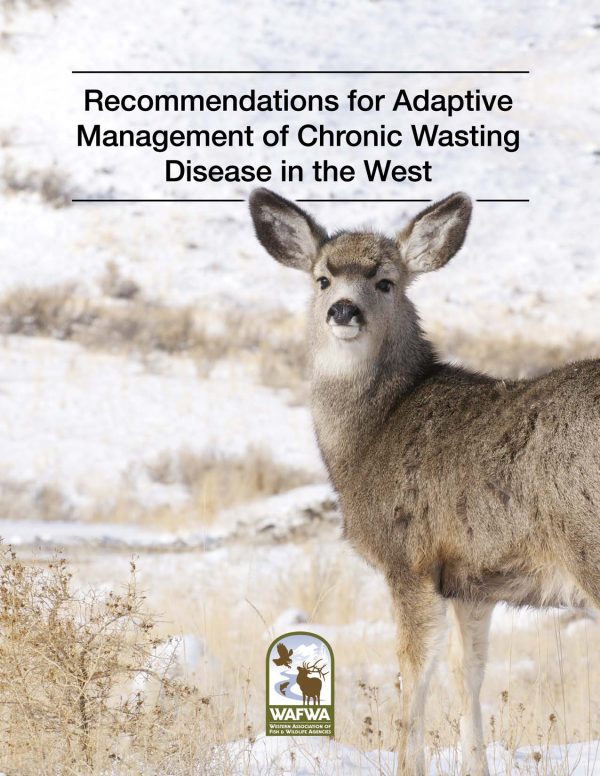Abstract: Chronic wasting disease (CWD) — an infectious prion disease affecting at least four important native cervid species — represents a significant threat to the future health and vitality of free-ranging cervid resources in western North America. Moreover, growing concerns about potential transmissibility to humans could erode hunting participation in affected areas. As this disease continues to spread through free-ranging populations in North America and elsewhere, viable management strategies are needed. This document outlines an approach for experimental application and assessment of prospective CWD suppression strategies using an adaptive management framework. The focus is on mule deer in western prairie, shrub-steppe, and southwest desert systems. We identify three strategies that warrant further evaluation and provide general guidance on criteria for site selection and evaluation.
Suggested citation: Western Association of Fish and Wildlife Agencies. 2017. Recommendations for Adaptive Management of Chronic Wasting Disease in the West. WAFWA Wildlife Health Committee and Mule Deer Working Group. Edmonton, Alberta, Canada and Fort Collins, Colorado, USA.
A product of the Mule Deer Working Group - Sponsored by the Western Association of Fish & Wildlife Agencies
Attached Files
| File | Action |
|---|---|
| CWDAdaptiveManagementRecommendations_WAFWAfinal_approved010618.pdf | Download |
- Version
- File Type pdf
- File Size 1.60 MB
- Publication Date January 6, 2018
